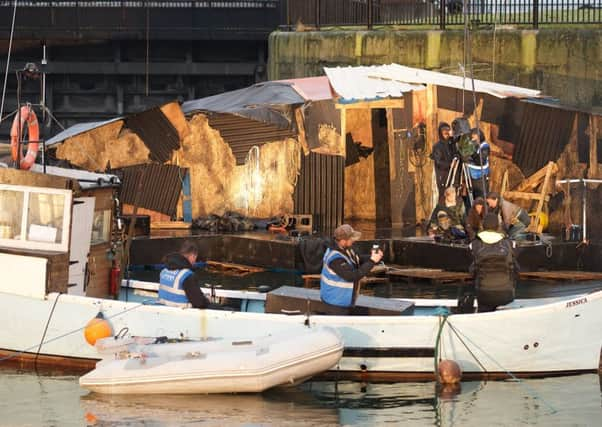Armchair theatre


I tuned in to BBC2 specifically to watch the third part of wonderful Leeds-based theatre company Slung Low’s epic four-part drama Flood, commissioned by Hull UK City of Culture. Entitled To the Sea, the latest instalment of the story was a powerful and eloquent exploration of humanity in crisis, encouraging thought and debate around the current, ever-growing refugee crisis in Europe and across the world.
Performance Live has been produced and developed by the BBC in partnership with Battersea Arts Centre and Arts Council England to showcase a range of work by some of the most exciting artists working in performance today across the country.
Advertisement
Hide AdAdvertisement
Hide AdIt kicked off last November with the always amazing Kate Tempest hosting a night of poetry and will continue over two years with innovative pieces of live performance taking in dance, comedy, spoken word and theatre.
After watching Flood I caught up with the previous piece in the strand, Paul Mason’s Why It’s Kicking Off Everywhere. Written and presented by the former Economics Editor of Channel 4 news and BBC’s Newsnight, it is a fantastically gutsy and resonant combination of the personal and the political looking at revolution, resistance and protest. With the help of three brilliant actors, Mason traces a trajectory from the optimisim of the Arab Spring and the origins of the Occupy Movement to Trump’s election and the present day. Filmed at the Young Vic in front of an audience, it may be in the tradition of performance-lecture but this is theatre, make no mistake, doing what it does best – asking the big questions, in this case ‘why, and how, did we get to this point?’ These are important messages that need to be heard. Framed within art, dramatised and fictionalised they have an accessibility and resonance that speaks to more people in a more profound way than a newspaper report might. And by televising those live theatrical performances an even wider audience is reached. The BBC frequently seems to be under fire at the moment, but – quite apart from its news reporting which, despite what detractors may say, is still world-class – it is a great supporter of the arts and it takes seriously its public service duty to educate and inform.
No organisation is without its flaws, but to my mind, the BBC gets a lot of things right. And, importantly, it understands that art is for everybody. I for one applaud that.